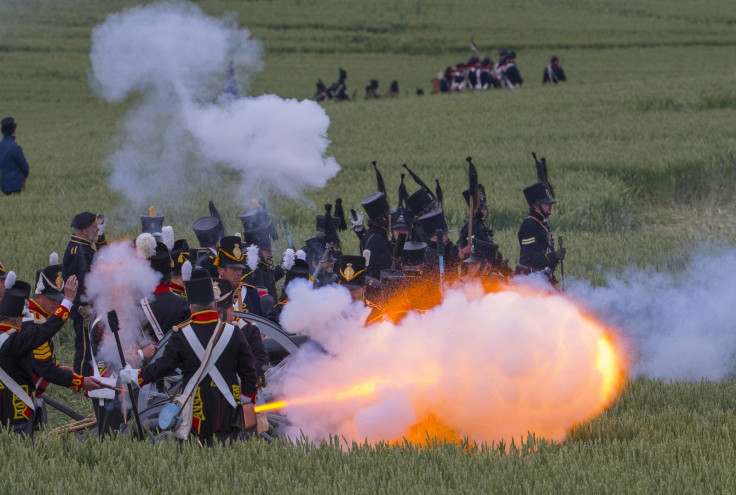Thousands gather for bicentenary re-enactment of the Battle of Waterloo

Over 5,000 re-enactors have taken part in the bicentenary commemoration of the Battle of Waterloo on Friday.
Billed as the biggest re-enactment of its kind, volunteers from 52 countries in full costume acted out the July 18, 1815, clash between the French army and the allied British, Prussian and Dutch forces.
In scenes reminiscent of a blockbuster movie, around 60,000 spectators watched the event, as canons and muskets flared and re-enactors waded through the grassy fields in Belgium.
The event featured 300 horses, 100 cannon, four tonnes of gunpowder and cost around €6.5 million (£4.6 million), the Times reported.
The re-enactors included men from a number of nationalities including Britain, New Zealand and of course France.
According to Jim Paylor, the quartermaster of the British forces, the re-enactors are not just actors playing a role; the men and women that attended the event are all passionate about the Napoleonic wars.
"Every one of these soldiers will buy their own uniform and their own equipment," Mr Paylor said. "That will cost about £1,000 to £1,500 for every infantry soldier. For the cavalry, it is probably £2,000 to £3,000 for their equipment."
The Battle of Waterloo was fought on June 18, 1815, where a coalition of soldiers led by the Duke of Wellington defeated the French army near the town of Waterloo, forcing Napoleon Bonaparte to retreat.
Around 180,000 men from across Europe took part in the battle, and thousands of Britons and allied troops died in the defeat of Napoleon's forces.
The dramatic re-enactment was a far cry from the sombre ceremonies on Thursday's anniversary of the battle, with Prince Charles unveiling a memorial at Hougoumont farm, a key site in the fighting.
In contrast, France only sent an ambassador to Thursday's ceremony, and denounced – prior to the event – Belgium's decision to mint a commemorative euro coin featuring the battle, according to the Times.
During the ceremony, Belgian Prime Minister Charles Michel, said: "Waterloo, the folly and the grandeur. The horror and the genius. The tragedy and then the hope."
The Belgian leader – whose government spent €10m on the commemorations – called for reconciliation through the "European project" and its promise of peace despite modern-day challenges of conflict on its borders in Ukraine and economic worries in Greece.
© Copyright IBTimes 2025. All rights reserved.



















